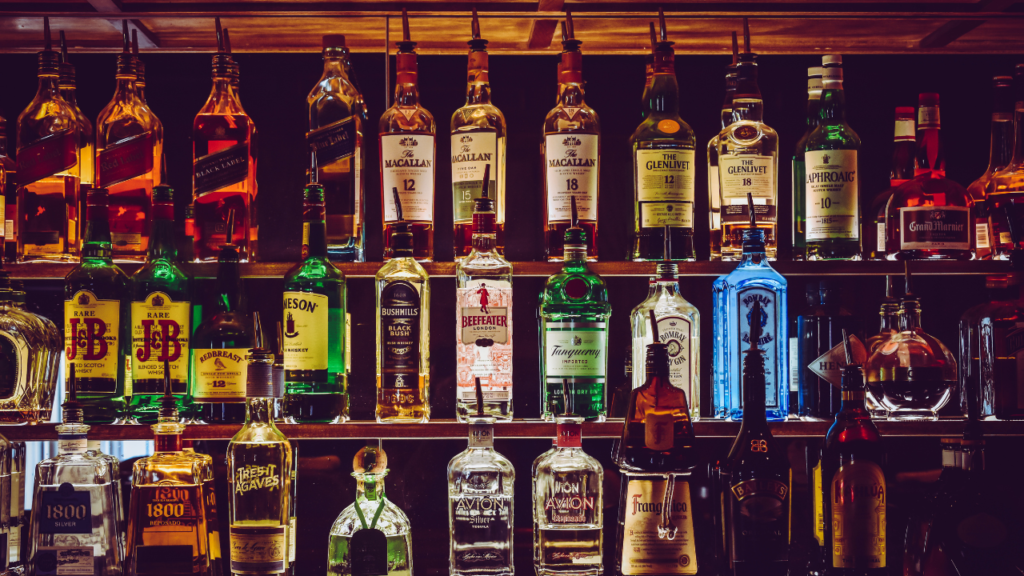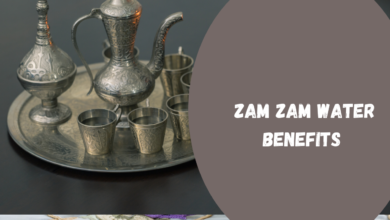Can Islam Drink Alcohol?
Unraveling the Prohibition: Islam's Stance on Alcohol Consumption

Can Islam Drink Alcohol?
Yes, alcohol consumption is entirely prohibited in Islam as it is considered a source of great sin and moral corruption.

Introduction
Alcohol consumption has been a topic of debate and discussion in many cultures and religions throughout history. In Islam, the issue of whether alcohol is permissible or prohibited is a matter of great significance. Islam is a religion that emphasizes a strict moral and ethical code, and the question of alcohol consumption is one that has been addressed in the Quran, the Hadith (sayings and actions of Prophet Muhammad), and through the scholarly interpretations of Islamic jurisprudence. In this article, we will explore the stance of Islam on alcohol and the reasons behind its prohibition.
The Quranic Perspective
The Quran, which Muslims believe to be the word of God as revealed to the Prophet Muhammad, provides clear guidance on the consumption of alcohol. In Surah Al-Baqarah (2:219), it is stated: “They ask you about wine and gambling. Say, ‘In them is great sin and [yet, some] benefit for people. But their sin is greater than their benefit.'”
This verse acknowledges that there may be some perceived benefits to alcohol, such as relaxation or social enjoyment, but it unequivocally declares that the harm it causes outweighs any potential advantages. Alcohol is seen as a source of great sin and moral corruption in Islam.
Also check.
- Who is the Wessiah in Islam?
- What is Wudu in Islam?
- What is Jihad in Islam?
- Why did Islam Spread So Quickly?
- What are the Holy Books of Islam?
Prohibition in the Hadith
The Hadith, which record the actions and sayings of the Prophet Muhammad, further emphasize the prohibition of alcohol. Numerous Hadith make it abundantly clear that the consumption of intoxicants, including alcohol, is forbidden in Islam. For example, the Prophet Muhammad is reported to have said, “Whatever intoxicates in large quantities, a small quantity of it is also forbidden.” This Hadith underscores the strict stance against not only excessive but also any amount of intoxicating substances.
Reasons for Prohibition
Several reasons underlie the prohibition of alcohol in Islam:
- Preservation of Mind and Reasoning: Alcohol impairs judgment and reasoning, making individuals more prone to sinful behavior. Islam places a significant emphasis on the importance of a sound mind to make moral and ethical choices.
- Maintaining Spiritual Focus: Intoxication is seen as a distraction from the remembrance of God and the practice of faith. Inebriation can hinder a person’s ability to pray, recite the Quran, and engage in acts of worship.
- Social and Health Consequences: Alcohol abuse can lead to a range of social issues, including family breakdowns, violence, and crime. Additionally, it can have detrimental effects on physical and mental health. Prohibiting alcohol is seen as a means of safeguarding society from these harms.
- Equal Treatment: Islam advocates for justice and equality. Alcohol consumption can lead to inequities and unfair treatment in society, as it often affects marginalized and vulnerable individuals disproportionately.
Alternative Beverages
It’s important to note that while Islam prohibits alcohol, it does not discourage the consumption of non-intoxicating beverages. Water, milk, juice, and various herbal teas are all permissible and encouraged in Islamic tradition. These beverages can still be enjoyed in moderation without compromising one’s faith or moral standing.
Conclusion
In Islam, the consumption of alcohol is unequivocally prohibited due to the moral, social, and health concerns associated with it. The Quran and Hadith provide clear guidance on this matter, emphasizing the importance of maintaining a sound mind, spiritual focus, and a just society. Muslims are encouraged to avoid alcohol and seek alternatives that do not have intoxicating effects. Ultimately, the prohibition of alcohol in Islam is rooted in a desire to promote a righteous and upright way of life that aligns with the principles of the faith.

FAQs
Is alcohol completely forbidden in Islam?
Yes, alcohol consumption is entirely prohibited in Islam as it is considered a source of great sin and moral corruption.
What does the Quran say about alcohol?
The Quran, in Surah Al-Baqarah (2:219), acknowledges some benefits in alcohol but states that its harm is greater. This verse serves as a clear prohibition.
Are there any exceptions for medicinal use of alcohol in Islam?
Some scholars permit the use of alcohol for medicinal purposes if no viable alternative exists, but it should be strictly regulated and used only as necessary.
What are the consequences of consuming alcohol in Islam?
Alcohol consumption is believed to impair judgment, hinder spiritual focus, and contribute to various social and health problems. It is considered a violation of Islamic principles.
Can Muslims consume non-alcoholic alternatives that mimic alcoholic beverages?
Generally, non-alcoholic alternatives that imitate the taste or appearance of alcoholic drinks are permissible as long as they do not contain any intoxicating substances.
Is there a difference of opinion among Islamic scholars regarding alcohol consumption?
While the majority of Islamic scholars agree on the prohibition of alcohol, there may be variations in interpretation or opinions on specific circumstances.
Can a Muslim drink alcohol in a non-Muslim country where it’s legal?
In Islam, the prohibition on alcohol applies universally, regardless of location or legality. Muslims are expected to adhere to their religious principles regardless of their surroundings.
What are the alternatives to alcohol for social gatherings in Islamic culture?
Muslims often enjoy non-alcoholic beverages like fruit juices, soft drinks, herbal teas, and water during social gatherings and celebrations.
Are there any spiritual or religious rituals involving alcohol in Islam?
No, Islam does not have any spiritual or religious rituals that involve alcohol. In fact, alcohol is seen as a hindrance to spiritual growth and religious practices.
How should Muslims respond if offered alcohol in social situations?
Muslims are encouraged to politely decline alcohol and may offer an explanation based on their faith. It’s essential to handle such situations with respect and courtesy.




